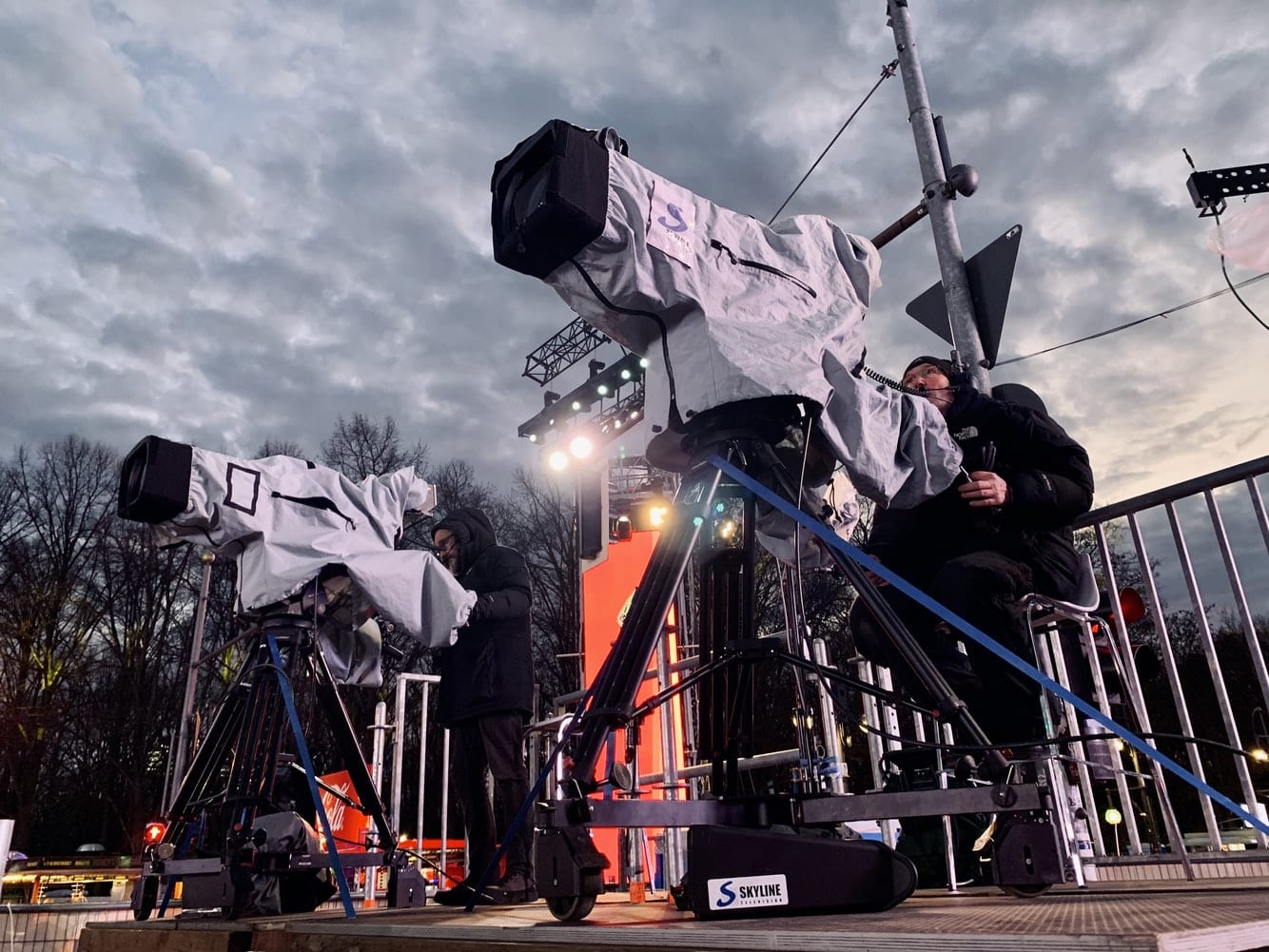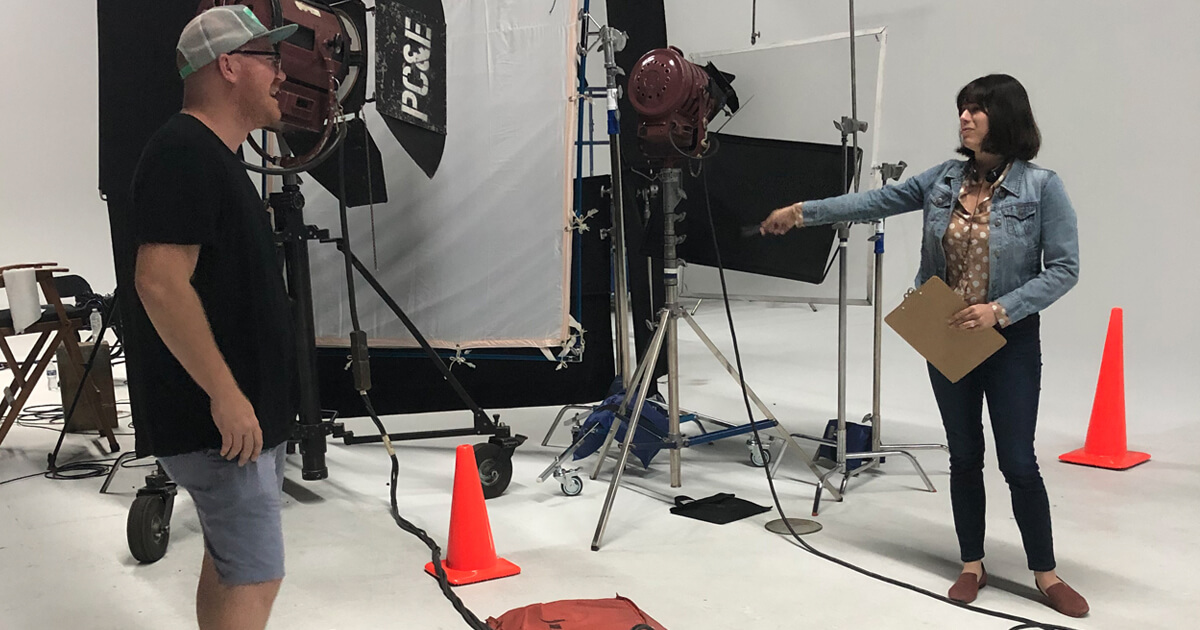Recognizing Event Production: Why It Is Essential for Successful Celebrations
Event production plays a crucial role fit successful celebrations. It entails cautious preparation, coordination, and implementation to ensure every detail aligns with the event's vision. This procedure not just enhances guest experiences yet likewise facilitates purposeful links among individuals. Understanding the ins and outs of event production can significantly impact the total outcome. What are the key aspects that add to an effective event, and how can they be successfully managed?
The Function of Event Production in Creating Unforgettable Experiences
Lots of variables add to the success of an event, event production plays an essential duty in crafting remarkable experiences. This multifaceted process includes numerous components, consisting of planning, logistics, and implementation. Reliable event production guarantees that every information aligns with the general vision, producing a smooth circulation that astounds participants. By coordinating timelines, taking care of resources, and overseeing technical elements, event producers establish a foundation for impactful experiences.Moreover, they curate atmospheres that resonate with the target audience, improving interaction and emotional connection. From selecting suitable places to incorporating innovative technology, the choices made throughout production considerably affect just how attendees perceive and bear in mind the event. By focusing on high quality and interest to detail, event production changes average celebrations right into extraordinary moments, leaving long lasting perceptions. Inevitably, the skillful orchestration of these parts defines the significance of an occasion, showcasing the value of expert event production in achieving remarkable end results.
Secret Parts of Successful Event Production
Effective event production rests on several key parts that guarantee success. Preparation and control establish a strong foundation, while technological setup demands resolve logistical requirements. Furthermore, implementing audience interaction approaches boosts the overall experience, making the event unforgettable.
Preparation and Coordination
Planning and sychronisation serve as the backbone of effective event production, making certain that every detail aligns perfectly to create a memorable experience. Efficient preparation involves establishing a clear vision and purposes, while sychronisation requires the careful organization of logistics, timetables, and resources. A well-defined timeline is essential, directing all stakeholders with important landmarks and jobs. Communication plays a critical function, cultivating collaboration amongst staff member, suppliers, and location personnel. Normal meetings and updates assist to deal with difficulties quickly, making sure that every person continues to be straightened with the event objectives. Eventually, a structured method to planning and coordination not just boosts effectiveness yet additionally substantially adds to the general success and pleasure of the event for guests and organizers alike.
Technical Setup Needs
An effective event depends heavily on its technical configuration needs, which incorporate crucial parts such as audio-visual devices, illumination, staging, and connectivity. Audio-visual tools includes microphones, speakers, and projectors, making certain that presentations and performances are supplied clearly. Correct illumination enhances the atmosphere and highlights crucial areas, while presenting offers the necessary system for audio speakers and performers. Connection, including Wi-Fi and electric access, is crucial for seamless communication and modern technology assimilation. Each element has to be diligently planned and implemented, customized to the event's certain requirements. Inadequate technological setups can cause disturbances, negatively impacting the overall experience for participants, highlighting the significance of complete prep work and interest to detail in event production.
Audience Interaction Approaches

The Significance of Planning and Sychronisation
Planning and sychronisation are essential to the success of any event production. Effective timeline administration, resource appropriation techniques, and team communication dynamics play important functions in ensuring that all aspects collaborated perfectly. Without an organized approach to these elements, events risk encountering delays, budget plan overruns, and miscommunication among team participants.
Reliable Timeline Monitoring


While successful event production typically pivots on imagination and implementation, reliable timeline monitoring remains an important aspect that can not be overlooked. A well-structured timeline acts as the backbone of any event, guaranteeing that each phase is carried out in a prompt fashion. It enables the control of different jobs, from place arrangement to visitor arrivals, while protecting against possible bottlenecks. By plainly laying out target dates and obligations, event organizers can maintain emphasis and adapt to unforeseen challenges. In addition, a diligently crafted timeline cultivates communication amongst group members, promoting liability and partnership. Ultimately, reliable timeline administration not only enhances operational efficiency but additionally contributes substantially to the general success and smooth implementation of the event, leaving guests with a remarkable experience.
Source Allowance Methods
Reliable source allotment techniques are essential for the effective execution of any event. Proper planning permits event organizers to recognize and distribute resources, such as financial resources, personnel, and products, in a manner that maximizes performance. By examining the specific requirements of each aspect of the event, organizers can focus on jobs and assign sources accordingly. Sychronisation amongst various departments makes sure that all aspects, from providing to audiovisual requirements, are adequately supported. This critical approach not only decreases waste yet likewise boosts the overall experience for attendees. Furthermore, preparing for possible challenges and having contingency plans in position permits for smoother operations. Inevitably, effective resource appropriation adds considerably to attaining event objectives and guaranteeing an unforgettable event.
Team Interaction Characteristics
How can seamless interaction among employee change the event production procedure? Reliable interaction is crucial for collaborating jobs, sharing updates, and attending to obstacles in real-time. When group participants take part in open dialogue, they can rapidly identify potential issues and create services collaboratively, lessening hold-ups and misunderstandings. This dynamic fosters a cohesive setting where every person recognizes their functions and obligations, resulting in a more synchronized effort. Additionally, normal check-ins and comments loops enhance liability and warranty placement with the event's goals. By focusing on communication strategies, groups can simplify process, strengthen spirits, and ultimately boost the total quality of the event. Effective gatherings depend upon the capability to communicate properly, making it a crucial element of event production.
Enhancing Participant Interaction Through Innovative Design
Innovative design plays an important role in boosting guest involvement at events, as it promotes an immersive setting that mesmerizes individuals' attention. By incorporating innovative visuals, interactive aspects, and thematic design, event organizers can create unforgettable experiences that reverberate with attendees. Thoughtful design styles promote motion and exploration, urging guests to communicate with displays and each other.Incorporating modern technology, such as enhanced truth or live ballot, more improves the experience, permitting real-time comments and communication. In addition, sensory aspects like lights, audio, and scent can evoke emotions and create an extra engaging atmosphere.The usage of storytelling with design aids communicate the event's objective and message, making it more relatable for attendees. Ultimately, imaginative layout not only boosts interaction yet likewise strengthens links among individuals, leaving a long lasting perception that extends beyond the event itself. This tactical technique to design is important for effective gatherings.
Managing Logistics for a Smooth Implementation
While the enjoyment of an event can attract participants in, handling logistics is essential to safeguard a smooth implementation. This includes thoroughly coordinating different elements, from venue selection and design to event catering and transportation. Reliable logistics visit here administration guarantees that all parts straighten, permitting a smooth circulation from registration to the conclusion of the event.Additionally, a clear interaction plan amongst all stakeholders is necessary. This includes personnel, suppliers, and volunteers, who need to be informed of their duties and obligations. Preparing for possible difficulties, such as equipment failing or unforeseen weather condition problems, can further boost the event's success.Creating a comprehensive timeline helps maintain the group on course and enables timely modifications. Inevitably, well-managed logistics not just promote an enjoyable experience for participants but also show the professionalism and trust and integrity of the organizers, adding to the general success of the view it now event.

The Effect of Modern Technology on Event Production
What function does innovation play in shaping modern-day event production? Innovation has come to be a cornerstone of effective event production, boosting both planning and execution processes. From innovative enrollment systems to interactive apps, technology simplifies participant monitoring and improves involvement. Digital event platforms allow coordinators to reach wider target markets, damaging geographical barriers and assisting in hybrid gatherings that combine in-person and online experiences.Additionally, audiovisual innovations, such as high-definition displays and stereos, raise the high quality of presentations and efficiencies, ensuring a remarkable experience for attendees - event production charlotte. Social network combination makes it possible for real-time responses and interaction, fostering area involvement previously, throughout, and after the event. Additionally, data analytics tools help coordinators in keeping track of participant habits and choices, making it possible for tailored experiences that resonate with diverse target markets. Overall, the integration of technology in event production not only improves functional effectiveness however likewise improves attendee experiences, ultimately contributing to the success of the event
Evaluating Success: Gauging the End Results of Your Event
Success in event production depends upon efficient analysis, which includes measuring a selection of end results to examine the overall impact of an occasion. To accomplish this, coordinators can employ both qualitative and measurable metrics. Quantitative steps may include presence figures, ticket sales, and earnings produced, while qualitative assessments might entail attendee satisfaction surveys and responses forms.Additionally, assessing social networks involvement and media protection can give understandings into the event's reach and brand effect. Comparing these metrics against predefined goals helps determine if the purposes were met.Furthermore, post-event debriefs with the preparation team can uncover lessons learned and locations for enhancement. By systematically assessing these outcomes, event manufacturers can enhance future events, making certain constant growth and success. Inevitably, an extensive evaluation not only highlights accomplishments but likewise educates calculated choices for subsequent events, cultivating a society of excellence in event production.
Regularly Asked Concerns
What Credentials Should an Occasion Manufacturer Have?
Event producers ought to possess solid organizational skills, creativity, and efficient interaction capabilities. A history in project administration, budgeting, and arrangement is important. Relevant qualifications and experience in diverse event types further boost their qualifications.
How Can I Decrease Event Production Expenses Efficiently?
To web effectively reduce event production prices, one can streamline supplier option, discuss contracts, utilize in-house resources, focus on crucial aspects, apply modern technology for effectiveness, and check out sponsorship opportunities to offset expenditures without jeopardizing top quality.
What Are the Typical Challenges in Event Production?
Typical obstacles in event production consist of spending plan constraints, logistical sychronisation, supplier administration, time constraints, guest involvement, technological problems, and unanticipated circumstances - event production charlotte. Each aspect can substantially affect the general success and smooth execution of the event
How Do I Select the Right Location for My Event?
Picking the right place involves thinking about factors such as location, capacity, facilities, and budget. In addition, evaluating access and setting assures the chosen area straightens with the event's goals and enhances the total participant experience.
What Is the Normal Timeline for Planning an Occasion?
The common timeline for intending an occasion differs, however generally includes stages such as idea advancement, place selection, vendor sychronisation, promo, and last preparations, typically covering numerous months to assure a successful implementation.